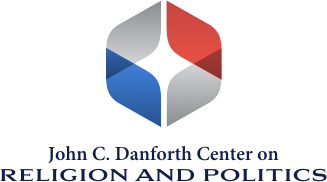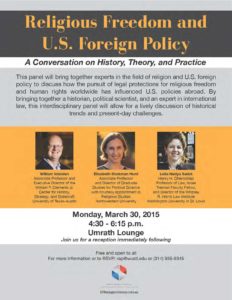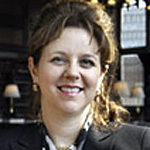Religious Freedom and U.S. Foreign Policy
A Conversation on History, Theory, and Practice
Visiting scholars discuss how religion shapes U.S. foreign relations.
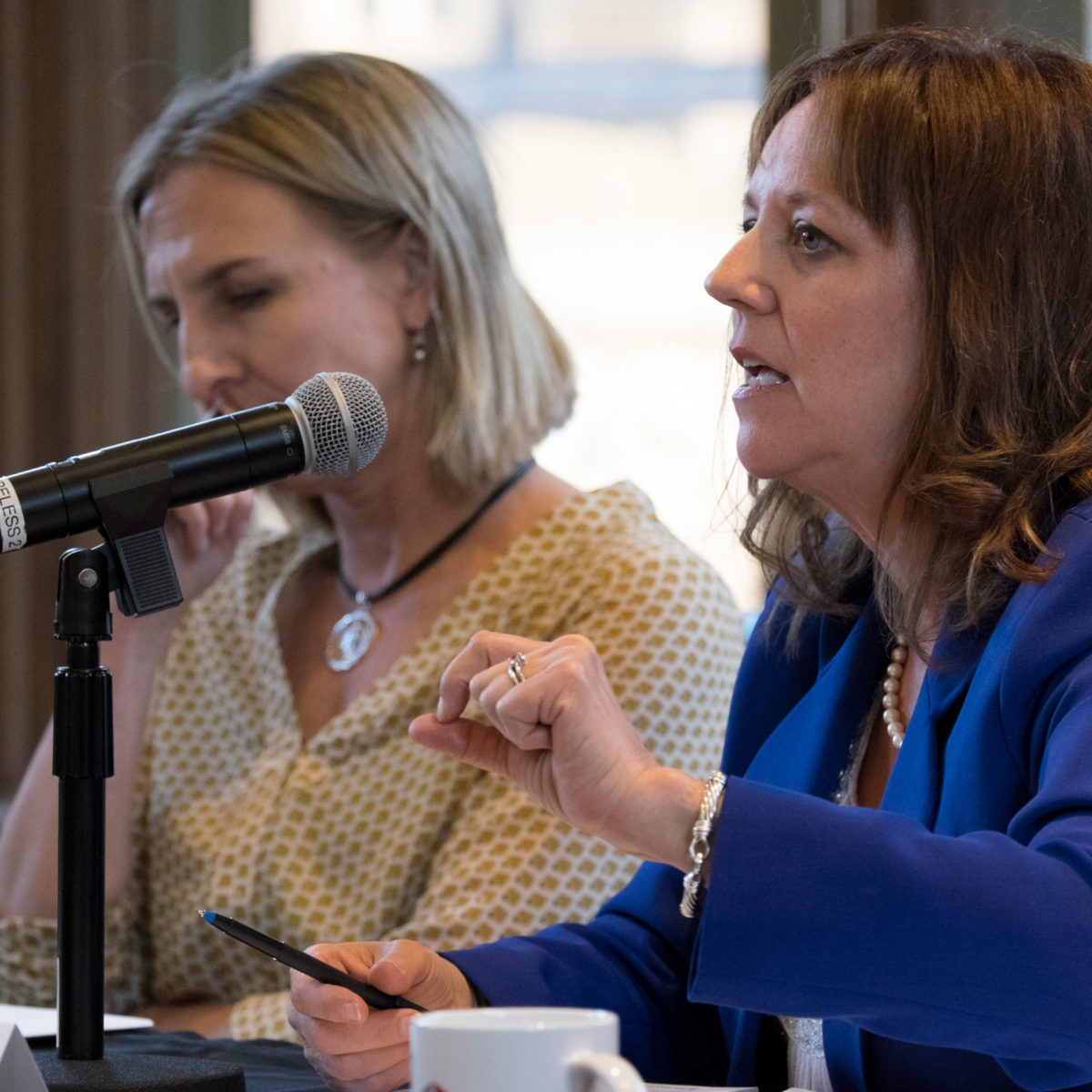
Monday
4:30–6:30PM
Umrath Lounge Washington University in St. Louis
One Brookings Drive
Saint Louis, MO 63130
Videos
-
Religious Freedom and U.S. Foreign Policy
William Inboden, Elizabeth Shakman Hurd, and Leila Nadya Sadat (March 30, 2015)
What role does religion play in shaping international relations? This panel will bring together experts in the field of religion and U.S. foreign policy to discuss how the pursuit of legal protections for religious freedom and human rights worldwide has influenced U.S. policies abroad. The discussants will touch on a range of topics, including but not limited to the passage and implementation of the International Religious Freedom Act in 1998, the role of U.S.-based religious interest groups in informing policies during episodes of religious conflict, and the manner in which contemporary international human rights norms have influenced the U.S. State Department. By bringing together a historian, political scientist, and an expert in international law, this interdisciplinary panel will allow for a lively discussion of historical trends and present-day challenges. Each speaker will offer a brief presentation, after which there will be a moderated discussion of the major themes of the panel followed by audience questions.
Please join us for a reception immediately following the presentation.
This event is free and open to all and we appreciate your RSVP to help plan food service. Please contact us at (314) 935-9345 or rap@wustl.edu for more information.
Panelists
 William Inboden, Executive Director of the William P. Clements, Jr. Center for History, Strategy, and Statecraft at the University of Texas-Austin. He also serves as Associate Professor at the LBJ School of Public Affairs and Distinguished Scholar at the Robert S. Strauss Center for International Security and Law. Inboden is a historian, and has worked as an Associate Scholar with Georgetown University’s Religious Freedom Project. He has also worked at the Department of State as a Member of the Policy Planning Staff and a Special Advisor in the Office of International Religious Freedom. His major publications include Religion and American Foreign Policy, 1945-1960: The Soul of Containment, published by Cambridge University Press in 2010.
William Inboden, Executive Director of the William P. Clements, Jr. Center for History, Strategy, and Statecraft at the University of Texas-Austin. He also serves as Associate Professor at the LBJ School of Public Affairs and Distinguished Scholar at the Robert S. Strauss Center for International Security and Law. Inboden is a historian, and has worked as an Associate Scholar with Georgetown University’s Religious Freedom Project. He has also worked at the Department of State as a Member of the Policy Planning Staff and a Special Advisor in the Office of International Religious Freedom. His major publications include Religion and American Foreign Policy, 1945-1960: The Soul of Containment, published by Cambridge University Press in 2010.
 Elizabeth Shakman Hurd, Associate Professor and Director of Graduate Studies of political science at Northwestern University. Hurd is the author of The Politics of Secularism in International Relations (Princeton University Press, 2008) and is currently finishing a book entitled Beyond Religious Freedom: The New Global Politics of Religion (Princeton University Press, 2015). Hurd is an organizer of the “Politics of Religious Freedom: Contested Norms and Local Practice” project. She consults on academic, media, and foundation projects involving religion and international affairs, and co-edited a series on the politics of religious freedom on The Immanent Frame.
Elizabeth Shakman Hurd, Associate Professor and Director of Graduate Studies of political science at Northwestern University. Hurd is the author of The Politics of Secularism in International Relations (Princeton University Press, 2008) and is currently finishing a book entitled Beyond Religious Freedom: The New Global Politics of Religion (Princeton University Press, 2015). Hurd is an organizer of the “Politics of Religious Freedom: Contested Norms and Local Practice” project. She consults on academic, media, and foundation projects involving religion and international affairs, and co-edited a series on the politics of religious freedom on The Immanent Frame.
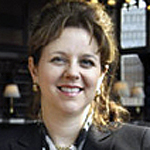 Leila Nadya Sadat, Henry H. Oberschelp Professor of Law, Israel Treiman Faculty Fellow, and Director of the Whitney R. Harris World Law Institute at Washington University in St. Louis. Sadat is an internationally recognized human rights expert specializing in international criminal law and justice, is currently service as the Special Adviser on Crimes Against Humanity to the ICC Prosecutor, and served on the U. S. Commission for International Religious Freedom from 2001 to 2003. She is the editor of Forging a Convention for Crimes Against Humanity (Cambridge University Press, 2011).
Leila Nadya Sadat, Henry H. Oberschelp Professor of Law, Israel Treiman Faculty Fellow, and Director of the Whitney R. Harris World Law Institute at Washington University in St. Louis. Sadat is an internationally recognized human rights expert specializing in international criminal law and justice, is currently service as the Special Adviser on Crimes Against Humanity to the ICC Prosecutor, and served on the U. S. Commission for International Religious Freedom from 2001 to 2003. She is the editor of Forging a Convention for Crimes Against Humanity (Cambridge University Press, 2011).
